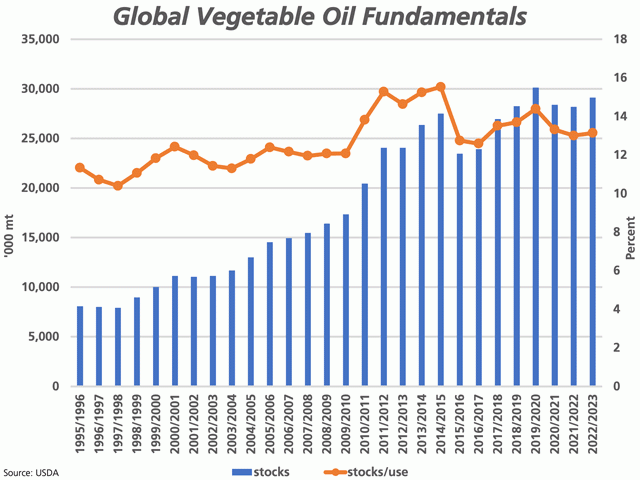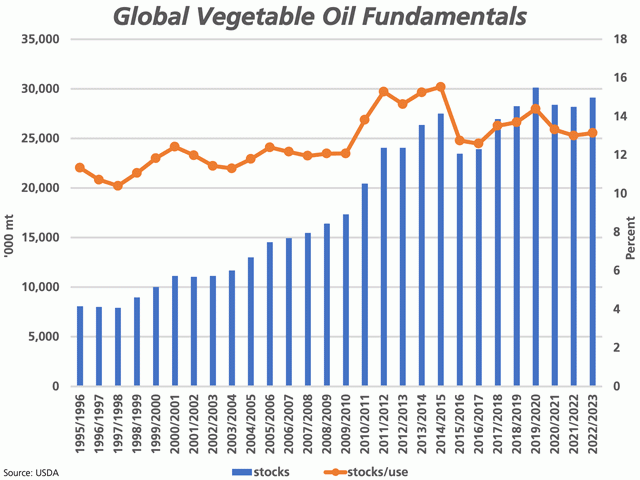Canada Markets
Global Vegetable Oil Markets May Remain Vulnerable
August rapeseed prices appear to have led the May 18 sell-off seen in oilseeds, with the ProphetX 30-minute chart showing heavy selling on the new-crop August chart at the market open at 3:45 a.m. Central Time. Further heavy selling was seen at 8:45 a.m. and continued during the morning. The August contract closed EUR 44.75/mt lower at EUR 831.25/mt, reaching its lowest level in nine sessions to slump to a level close to the support of its 50-day moving average. The August/November futures spread weakened EUR 3.25 to EUR 11.50/mt (August over the November contract), while the weakest inverse seen since Feb. 28. Wednesday's weakness was also despite Euro weakness against the United States dollar.
This compares to North American trade that saw heavy selling in soybean oil and canola at 8:30 a.m. CDT.
P[L1] D[0x0] M[300x250] OOP[F] ADUNIT[] T[]
The attached chart shows the USDA Foreign Advisory Service estimates of global stocks for the nine major vegetable oils, with the blue bars representing global stocks which are currently forecast to rise to the highest level in three years at 29.121 million metric tons in 2022-23. The global stocks/use is also to rise to 13.1%, the first year-over-year increase in three years. Of course, this represents the first estimate for 2022-23 crop year and will face revisions over time.
When the USDA's global consumption data is considered (not shown), production of global oilseeds is forecast to exceed consumption for a seventh straight year at 5.093 mmt, the largest amount seen in three years.
In recent days, Argus Media has reported on Germany's study and potential legislation that would reduce biofuel blending in order to preserve supplies for human consumption markets. They are not alone, with Argus pointing to Germany's aim to make a decision "as soon as possible," while the country's move on this legislation is already trailing similar changes in blending mandates reached in Norway, Sweden and Finland, while Belgium is proposing a similar move.
A continued move in this direction has the potential to spread, leaving vegetable oil prices on potential shaky ground. With food inflation leading to unrest in some countries, a worst-case scenario, to voter discontent in others, politicians backed into a corner may be forced to set aside their climate ambitions in order to meet the basic needs of their citizens.
Cliff Jamieson can be reached at cliff.jamieson@dtn.com
Follow him on Twitter @Cliff Jamieson
(c) Copyright 2022 DTN, LLC. All rights reserved.






Comments
To comment, please Log In or Join our Community .